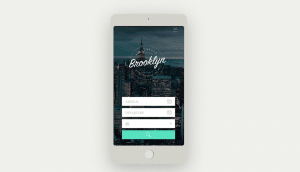There is no doubt that mobile browsing and buying is on the rise. As a vacation rental owner, optimizing your website for mobile devices is now more important than ever before for growing your business.
According to Criteo’s latest Travel Insight Report, up to 80% of last-minute bookings are made on mobile devices. By the end of 2017, online travel agencies gained 39% of their bookings on smartphones. This represents a 61% increase compared to the same period in 2016.
Having a website that allows guests to search for accommodation, book their trip and communicate with you all through their mobile devices will ease the process and lead to a quicker conversion. Failing to do so, however, will definitely hinder your booking numbers. How can you ensure your site is mobile optimized and doesn’t fall down the rankings? Let’s explore what this means for your vacation rental business.
Get Google to notice your vacation rental website
These recent statistics bring us to one conclusion: mobile-friendliness just got even more critical for business owners. Since 2015 (when Google modified its mobile search algorithm to only display listings that could easily be viewed on mobile devices), mobile-friendliness has been an essential factor for ranking.
Google’s mobile web standards now disqualify sites with slow load times, incorrect formatting, blocked Javascript and CSS files, and outdated Flash animations. Any of these issues could sabotage your listing from showing up in Google’s mobile search results and cause you to miss out on a potential booking.
The bottom line? Being mobile-friendly is no longer a choice for vacation rental owners. The statistics have spoken and, like it or not, it’s an absolute must. Unless you want to risk your vacation rental website being buried in Google’s mobile search results, you need to make sure your site is optimized.
What Can You Do To Ensure Mobile Optimization?
There are four distinct areas that require attention if you’re to have an optimized website for browsing and booking on mobile devices. Let’s take a look at what they are.
1. Responsive Web Design
The first step in making sure your website functions perfectly across non-desktop devices is by choosing a responsive website design. Responsive websites will automatically resize and adapt according to the device in use. This means everything from navigation menus and CTA buttons to images and text all adapt to the user’s device. It’s especially important that your responsive design extends to your booking engine, too. Without it, potential guests will have difficulty searching for their preferred dates and making a reservation on your site, and this could drive them to a competitor instead.
2. Site Speed

Website speed is another essential factor that affects ranking. This is even more pertinent on mobile devices which generally use 3G or 4G internet connections, in place of fiber-optic WiFi or broadband. If your website doesn’t provide a quick and easy experience with fast loading times on mobile, it’s likely your visitors will abandon your site. In turn, this can negatively impact your position in search results.
3. Local SEO
Google reports a 3400% growth in “near me” searches since 2011. A whopping 80% of these come from mobile devices! Local SEO is, therefore, another task to get ahead of if you want your listings to achieve good rankings.
To start with, claim all the online business listings you can for your property. That means a Google My Business page, a Facebook Page, a Bing business listing and a TripAdvisor one to name a few. This will ensure representation and verification of your rental location across the internet – the more places a guest sees your rental name, the more trust it gains. In all these listings, make sure you include a link to your vacation rental business website. It’s also important to be consistent and accurate with your business brand name, address and telephone number – any small errors can lead to creating duplicates of your listings which is bad news for local SEO.
You can also partner with local businesses and earn links from their authoritative, local websites. You can do the same on your blog or area guide for your property, by including links to them on your “things to do” or “restaurant recommendations” pages. These reciprocal links help to build authority for your website in your local community, boosting its ranking in mobile search results in particular.
4. Up-to-date Website
Your website represents your vacation rental property, and having it up-to-date is a must. It will ensure guests that you as a host are reliable and your rental is trustworthy. This includes having an easy-to-read font. Whilst having a unique and fancy font may seem like a creative idea, if it’s hard for visitors to read, it will stop them from browsing the rest of the website. The same goes for photos, they need to be optimized for a mobile device. Whilst the photo may look great on a laptop, imagine if it doesn’t fit in the mobile version and the text overrides the photos.

Lodgify’s website templates are 100% mobile-friendly and already optimized for Google’s stringent design criteria. Our responsive web design allows mobile users to easily view photos, check availability booking dates, and securely book their vacation all with a few swipes. So, what does that mean for you? That there’s no need to update your site, and you’ll never have to worry about accommodating every new smartphone, tablet, or mobile device on the market. When it comes to mobile optimization, we have you covered. You can focus on running your vacation rental (from your phone or your office) and enjoy total peace of mind knowing that your site looks just as great on your guests’ mobile phones as it does on their computer screens.
Always check your website on a mobile phone. Go through the stage a potential guest would in finding your website and then browsing it. By following these steps, you can ensure that your website is a perfect fit for mobile devices and will be a great user experience for your guests.


